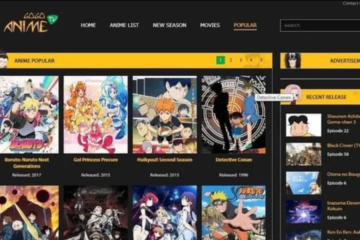Many business-to-business (B2B) organizations rely on relational and account-based marketing techniques, which necessitate individualized human labor due to their lengthy sales cycles, specialized audience, and high average contract values. This could be the reason why, unlike large-scale direct-to-consumer operations, marketing automation is frequently not a tactical priority. However, automation solutions are becoming increasingly effective at saving time and money, especially for complicated B2B enterprises. Your rivals are using automation if you’re not.
Businesses use marketing automation to measure, automate, and streamline marketing workflows and tasks. By implementing B2B marketing solutions, businesses can increase operational efficiency, more precisely target desirable clients, and generate more leads at scale.
You will employ software platforms designed to more effectively mark on several channels and automate repetitive processes to develop automated workflows. This is especially important for handling complex marketing campaigns with several touch points throughout the lifecycle.
By utilizing technology-driven automation, B2B companies may effectively handle lead creation, cultivate customer connections, and boost sales growth while preserving a competitive advantage in the market.
Why Implement Automation In B2B Marketing
With 93% of marketers utilizing some sort of automation in their campaigns, marketing automation is a key factor in changing how B2B companies approach sales and marketing. These are four explanations for
Complex Sales Cycles Gets Streamlined
Procurement cycles for B2B sales are frequently lengthy and involve multiple stakeholders and decision-makers. This is how marketing automation makes these intricate procedures simpler:
Automated Follow-Ups: Guarantees consistent communication by sending out automated follow-up emails or other content that keeps the company at the forefront of decision-makers’ minds while they are making decisions.
Lead Nurturing: This is the process of educating and persuading prospects over time with targeted content, guiding them down the sales funnel without the need for human intervention.
Behavior Tracking: This system tracks and evaluates user interactions (such as website visits, email opens, and content downloads), enabling sales teams to follow up when it’s most convenient.
Improving Lead Management
Because most B2B relationships are long-term and highly valuable, effective lead management is essential for businesses doing business with other companies. Automated marking improves this process by:
Lead Scoring: This system evaluates leads automatically based on predefined criteria, including engagement level, behavior, and demographic details. This assists in ranking leads so that sales efforts are concentrated on those who have the highest likelihood of closing.
Segmentation: Segmentation is the process of grouping leads according to shared traits or actions. This makes it possible for highly targeted marketing initiatives to connect more successfully with each segment.
Automated Path Planning: This system sends leads to the relevant sales personnel based on certain triggers or thresholds for scoring, guaranteeing that leads are handled by the team member most qualified to close them.
Accelerations Scale and Effectiveness
The capacity to scale marketing efforts without a corresponding increase in resources becomes essential as B2B companies expand. Marking automation makes this scalability possible by:
Automated Campaigns: These allow the execution of large-scale marketing campaigns based on user-defined rules and scheduling that can run automatically. This enables marketing teams to manage more campaigns at once without requiring extra resources.
Resource Optimization: Frees up human resources for more complex and creative work by automating repetitive processes like email distribution, social media posting, and ad campaigns.
Maintaining brand consistency across all channels and communications is important for maintaining cohesive messaging that is in line with the company’s marketing strategy, regardless of the medium.
Provides Precise Analytical Information
Analytics and real-time reporting play a crucial role in marketing automation and support each of these roles. This guarantees that you may make decisions based on data by:
Performance Evaluation: It monitors the performance of marketing initiatives in real-time across many channels, offering metrics like conversion rates, click-through rates, and return on investment.
Customer Insights: This tool compiles information on customers’ preferences and behavior, which can be used to guide messaging, campaign timing, and content creation.
A/B Testing: enables comparison between several campaign variations to see which performs better, so fine-tuning marketing strategies for the best possible outcomes.
Businesses may promote a more collaborative, efficient, and data-driven environment between sales and marketing by leveraging marketing automation tools. This improves both teams’ effectiveness and yields better overall business outcomes, which makes the transition process from lead generation to conversion more predictable and seamless.
B2B Marketing Solutions: Enhancing Efficiency with Marketing Automation in SaaS
Building on the strengths of account-based and relational marketing, B2B companies are using marketing automation more and more to optimize their intricate sales cycles. This change is mostly due to SaaS technology, which enables companies to monitor, automate, and optimize marketing-related processes. Businesses can increase operational efficiency, more accurately target desirable clients, and produce more leads at scale by putting B2B marketing solutions into practice. The sales process can be made more successful and efficient by using automated workflows, which manage intricate marketing campaigns with several touchpoints, guarantee constant communication, nurture leads, and monitor user behavior.
Additionally, long-term, high-value B2B connections depend on efficient lead management. Through automated path design, lead scoring, and segmentation, marketing automation enhances this procedure. Prospective Leads with the highest chance of sales conversion are prioritized through lead scoring, which assesses leads according to predetermined criteria. Highly focused marketing campaigns may be carried out thanks to segmentation, and automated path planning guarantees that leads are sent to the best sales representatives. With the help of these features, B2B businesses can grow their marketing initiatives without using more resources, allocate human capital more effectively to more difficult projects, and keep their brands consistent across all platforms.
SaaS-powered marketing automation gives B2B companies the tools they need to improve lead management, expedite sales cycles, and effectively scale their marketing initiatives. By utilizing these automation solutions to create a more efficient, data-driven, and cooperative sales and marketing environment, businesses may improve their outcomes and facilitate a seamless and optimized transition from lead generation to conversion.
Conclusion:
Not only is a marketing automation strategy beneficial, but it is also essential for B2B companies looking to prosper in the current digital landscape. Incorporating marketing automation into your company’s operations has obvious benefits: increased productivity, improved customer satisfaction, more precise data-driven decision-making, and consistent communication across all channels.
Stay in touch to get more news & updates on Forbes Zine!




